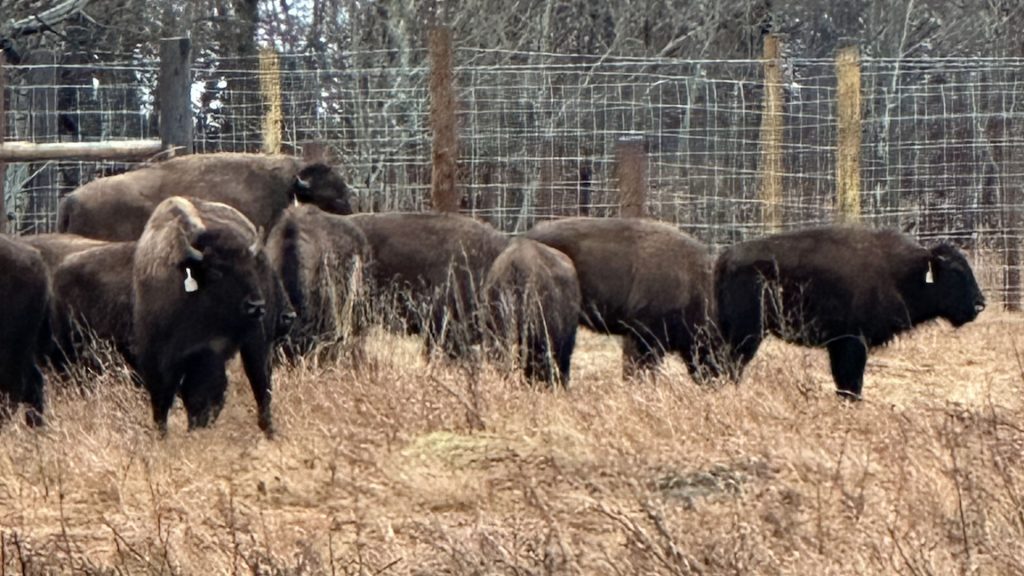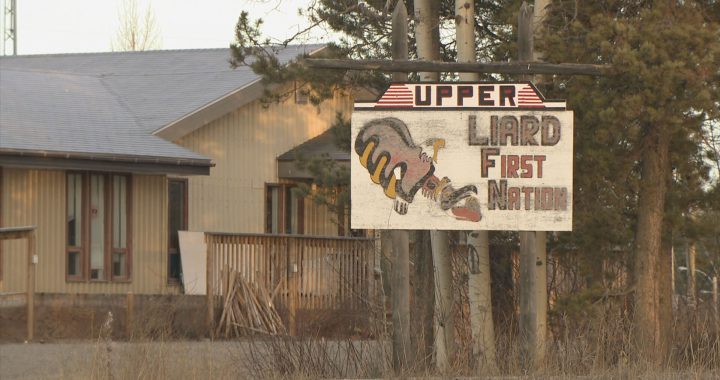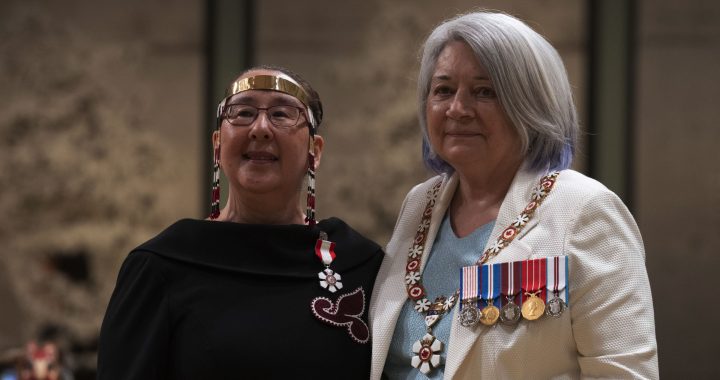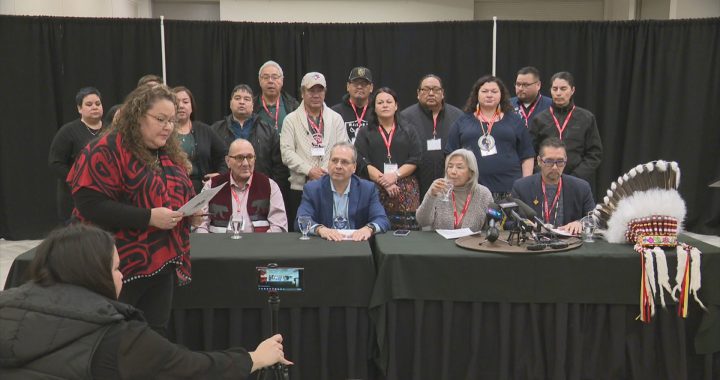
Bison calves in their new home near Batoches National Historic Site. Photo courtesy: MN-S.
After a decade of planning, land transfers and partnerships, Métis Nation-Saskatchewan (MN-S) has officially brought bison back to their homeland.
A small collection of MN-S staff, dignitaries and Métis Elders came together to make history on Dec. 7, as they successfully welcomed 25 Plains bison calves from Parks Canada to land located near Batoche National Historic Site.
In attendance was MN-S Vice President and Minister of Environment Michelle LeClair who said the welcoming of the bison back to Batoche is a crucial way of acknowledging the importance of bison to Métis culture.
“Our youth will see a tangible demonstration of Métis tradition and values as our Elders help provide invaluable land-based education,” she said. “Together, we will bear witness to the growth of the herd as it reclaims the land and allows our Métis Nation government to explore the opportunities presented to us.”
The move was made possible as Parks Canada continues to work with Indigenous communities to bring bison back to their long-established rangelands. An agreement was signed in July 2022 between the federal government and MN-S to ensure a smooth transition for both the community and the bison.

One of the key steps in the move happened in July 2022 when Parks Canada officially transferred a portion of the 690 hectares of land on the Batoche grounds to MN-S. Although the bison are not currently located on that portion of land, phase two of the move involves allowing the bison to grow their herd on that land.
The bison are exploring their new home on the South Saskatchewan River about an hour north of Saskatoon. The site honours the Métis community of Batoche and the 1885 conflict between the Métis provisional government and the government of Canada.
Steven Guilbeault, the minister responsible for Parks Canada joined MN-S at the Batoche National Historic Site to acknowledge the importance of bison to First Nations, Inuit and Métis peoples.
“By supporting the Métis Nation–Saskatchewan in returning bison to the landscape of Batoche, the government of Canada is helping with this transfer that will help renew cultural, historical, and spiritual connections,” said Guilbeault. This is a tangible example of the Government of Canada’s commitment to advancing reconciliation with Métis.”
Along with the cultural significance of the move, MN-S is looking forward to offering the educational and economic opportunities that will arise from having the bison back in the area.











